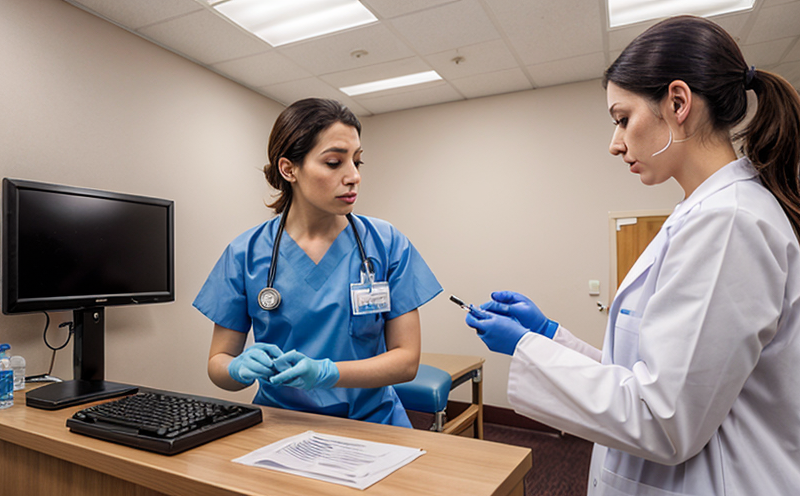Pesticide Residue Screening in Fresh Produce
The importance of ensuring food safety cannot be overstated. In the realm of clinical and healthcare testing, particularly within the domain of clinical toxicology and drug screening, pesticide residue screening in fresh produce plays a critical role. Pesticides are widely used to protect crops from pests, diseases, and weeds; however, excessive or improper use can lead to harmful residues on fruits and vegetables, posing significant health risks.
Our laboratory specializes in providing comprehensive pesticide residue screening services for various types of fresh produce, including apples, oranges, carrots, spinach, and more. Our expertise lies in ensuring that the food we consume is safe from hazardous chemical contamination. We adhere strictly to international standards such as ISO 17025 for quality management systems to ensure our testing processes are accurate and reliable.
Our process begins with rigorous sample collection and preparation, following strict protocols outlined by regulatory bodies like the Food and Drug Administration (FDA) in the United States. After thorough extraction of potential pesticide residues from the samples, we employ advanced analytical techniques such as Liquid Chromatography-Mass Spectrometry (LC-MS/MS), which is highly sensitive and capable of detecting even trace levels of pesticides.
The results of our analysis are meticulously reported to clients, providing detailed information on the presence or absence of various pesticide residues. This data can be used by quality managers in food production facilities to make informed decisions about sourcing safe produce for their products. Compliance officers rely on these reports to ensure they meet stringent regulatory requirements set forth by agencies like the European Union and other international bodies.
R&D engineers benefit from this service as it helps them understand trends in pesticide usage and develop safer alternatives or improved farming practices. Procurement teams also find value in our services when evaluating suppliers, ensuring that only produce meeting strict safety standards is used in their operations.
Why It Matters
The presence of pesticide residues on fresh produce has been linked to a variety of adverse health effects, including neurotoxicity, endocrine disruption, and developmental disorders. Children are particularly vulnerable due to their developing systems. Ensuring the safety of our food supply is paramount not only for public health but also for maintaining consumer confidence in agricultural products.
Regulatory bodies around the world have established maximum residue limits (MRLs) for specific pesticides on different types of produce. These limits are designed to protect consumers from potential harm while allowing for effective pest control in agriculture. Our laboratory strictly adheres to these MRLs, ensuring that our test results reflect actual compliance with regulatory standards.
Beyond safety concerns, pesticide residue screening also supports sustainable agricultural practices. By identifying which pesticides are present and at what levels, farmers can adopt more targeted approaches to pest management, reducing unnecessary chemical use and minimizing environmental impact.
Benefits
- Rigorous Compliance: Ensures adherence to international standards like ISO 17025 for quality control in testing processes.
- Accurate Detection: Utilizes advanced LC-MS/MS technology capable of detecting even trace amounts of pesticides.
- Data Transparency: Provides detailed reports on pesticide residues, facilitating informed decision-making by stakeholders.
- Sustainable Agriculture: Helps farmers adopt targeted pest management practices, enhancing sustainability.





